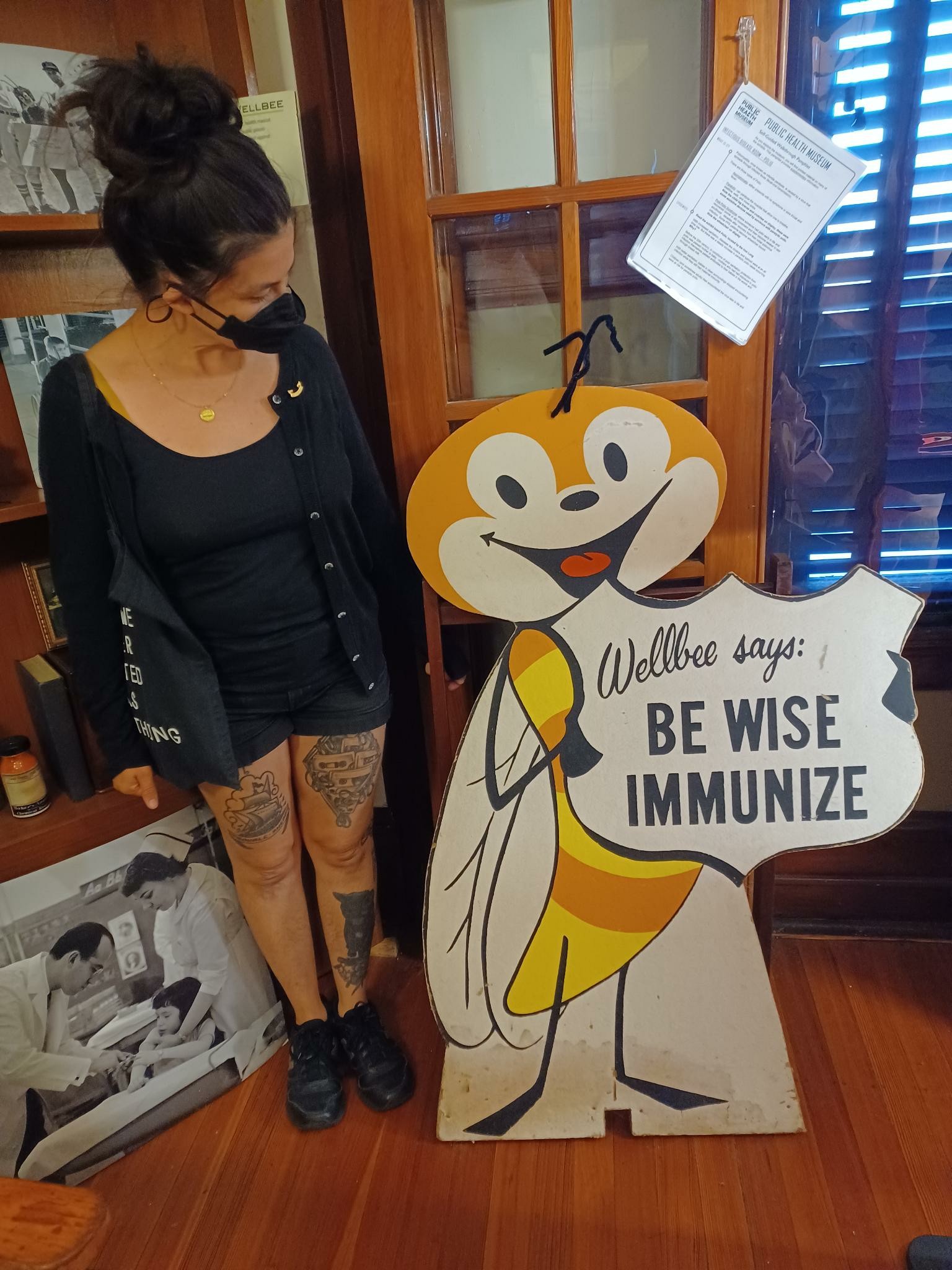Finally made it to the Public Health Museum in Tewksbury.
-
Finally made it to the Public Health Museum in Tewksbury. It was a little small and clearly underfunded, which is a bummer, but the tour guide was cool and the grounds of the old hospital were beautiful. Was cool to see some of the old instruments, including the air compression gun they used to administer the smallpox vaccine with

As our public health system is being dismantled in real time, I recommend checking this place out and donating if you can. It's important to see how far we have come and what we are on our way back to as the grifter snake oil salesmen like RFK amass more control.

-
 F myrmepropagandist shared this topic
F myrmepropagandist shared this topic
-
Finally made it to the Public Health Museum in Tewksbury. It was a little small and clearly underfunded, which is a bummer, but the tour guide was cool and the grounds of the old hospital were beautiful. Was cool to see some of the old instruments, including the air compression gun they used to administer the smallpox vaccine with

As our public health system is being dismantled in real time, I recommend checking this place out and donating if you can. It's important to see how far we have come and what we are on our way back to as the grifter snake oil salesmen like RFK amass more control.

Social insects like bees and ants are excellent mascots for public health because due to their densely populated nests insects invented some of the fundamentals of "public health" long before humans even existed.
Ants famously have grave yards. It's fun to imagine this is because they are sad about their fallen sisters and wish to remember them, but the real reason is much more simple: dead ants can be vectors of ant pathogens, so it's important to isolate the dead bodies.
-
Social insects like bees and ants are excellent mascots for public health because due to their densely populated nests insects invented some of the fundamentals of "public health" long before humans even existed.
Ants famously have grave yards. It's fun to imagine this is because they are sad about their fallen sisters and wish to remember them, but the real reason is much more simple: dead ants can be vectors of ant pathogens, so it's important to isolate the dead bodies.
The isolation of the ant graveyard isn't just as simple as making a macabre pile, ants who work in the grave yard are the oldest ants in the colony, near the end of their lives ants take on this more risky task and these ants will often sleep outside of the nest or only enter the upper chambers to create a further layer of isolation for the young.
When ants are young they work with eggs and the young larvae, they help their sisters to eclose from silk pupae.
-
The isolation of the ant graveyard isn't just as simple as making a macabre pile, ants who work in the grave yard are the oldest ants in the colony, near the end of their lives ants take on this more risky task and these ants will often sleep outside of the nest or only enter the upper chambers to create a further layer of isolation for the young.
When ants are young they work with eggs and the young larvae, they help their sisters to eclose from silk pupae.
But as ants feel their life drawing to the end they take on greater risks, fighting intruders, or working in the graveyard, and they isolate themselves from the younger colony members.
Ants also use formic acid, tree resin and other substances to reduce unwanted bacteria and fungi in the nest.
It's all about keeping the colony healthy.
I know less about bees, but they must have similar practices to live with such success in hives.
-
But as ants feel their life drawing to the end they take on greater risks, fighting intruders, or working in the graveyard, and they isolate themselves from the younger colony members.
Ants also use formic acid, tree resin and other substances to reduce unwanted bacteria and fungi in the nest.
It's all about keeping the colony healthy.
I know less about bees, but they must have similar practices to live with such success in hives.
@futurebird And we think we're the best creatures on earth. Cos we, I dunno, invented Tiktok.
-
But as ants feel their life drawing to the end they take on greater risks, fighting intruders, or working in the graveyard, and they isolate themselves from the younger colony members.
Ants also use formic acid, tree resin and other substances to reduce unwanted bacteria and fungi in the nest.
It's all about keeping the colony healthy.
I know less about bees, but they must have similar practices to live with such success in hives.
@futurebird @xeroxerox At least common European honeybees don't have designated graveyard sites, but they do carry deceased bees who die inside the hive out and drop the bodies on the ground somewhere away from the hive - probably also for "public health" reasons. Of course, this is a lot easier to do efficiently when you can fly.
(If you haven't already read it, Chittka's "The Mind of a Bee" is an *amazing* book.)
-
@futurebird And we think we're the best creatures on earth. Cos we, I dunno, invented Tiktok.
Bees and ants have accomplished all of these things without "knowing" what they are doing, it's just built into how they live.
One of the reasons I'm obsessed with them. It's another way of "knowing things" and understanding and contending with the problems of survival.